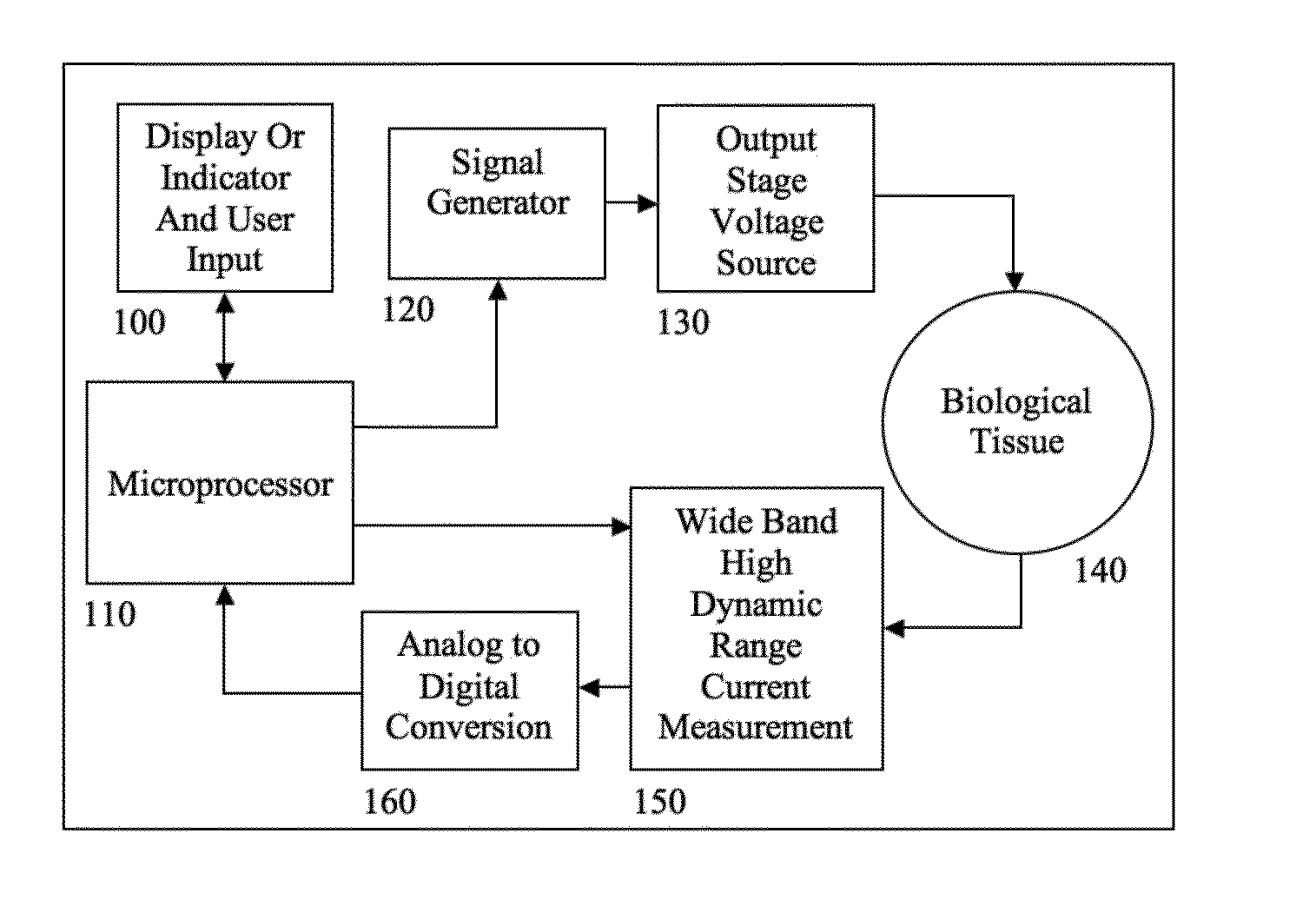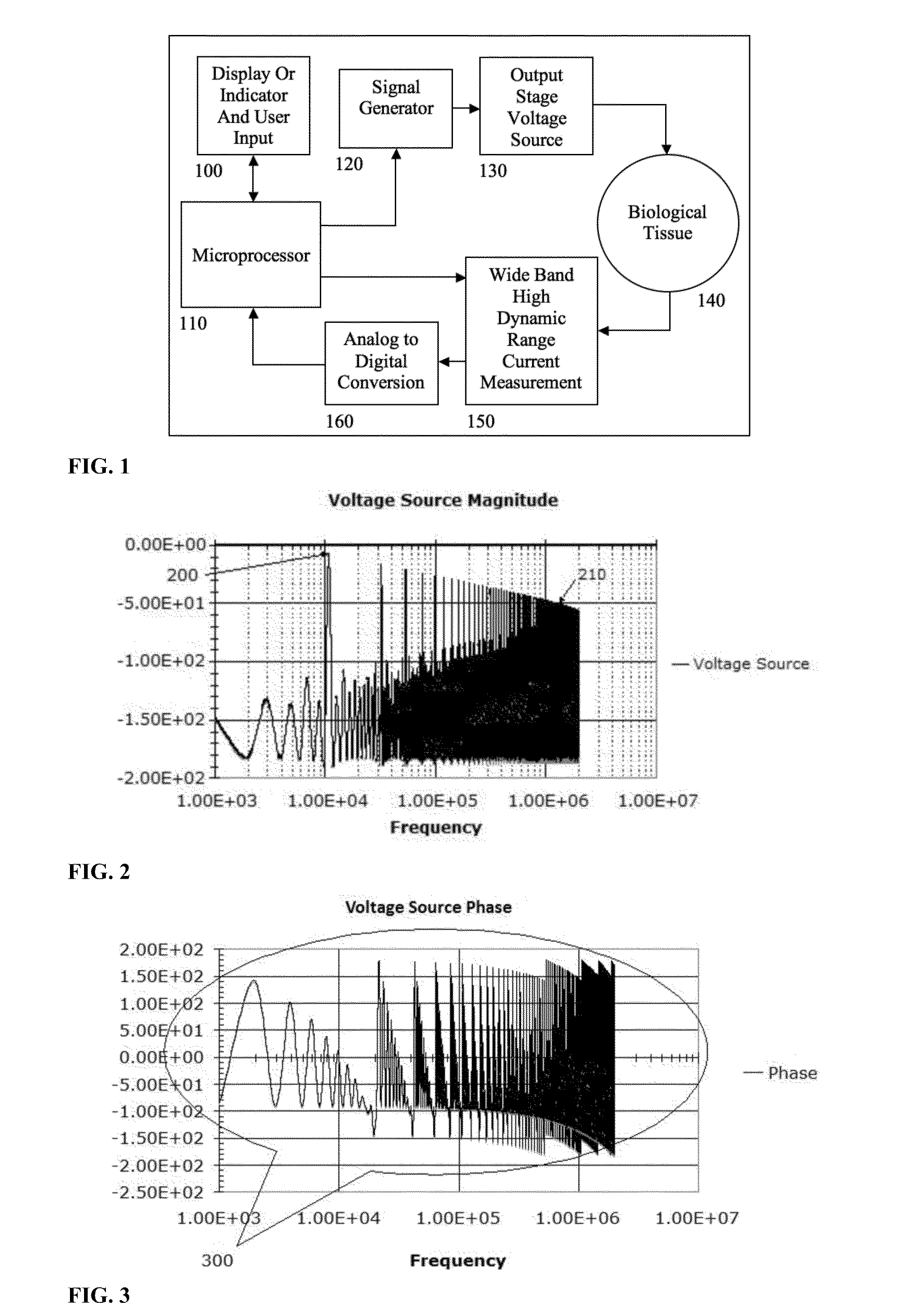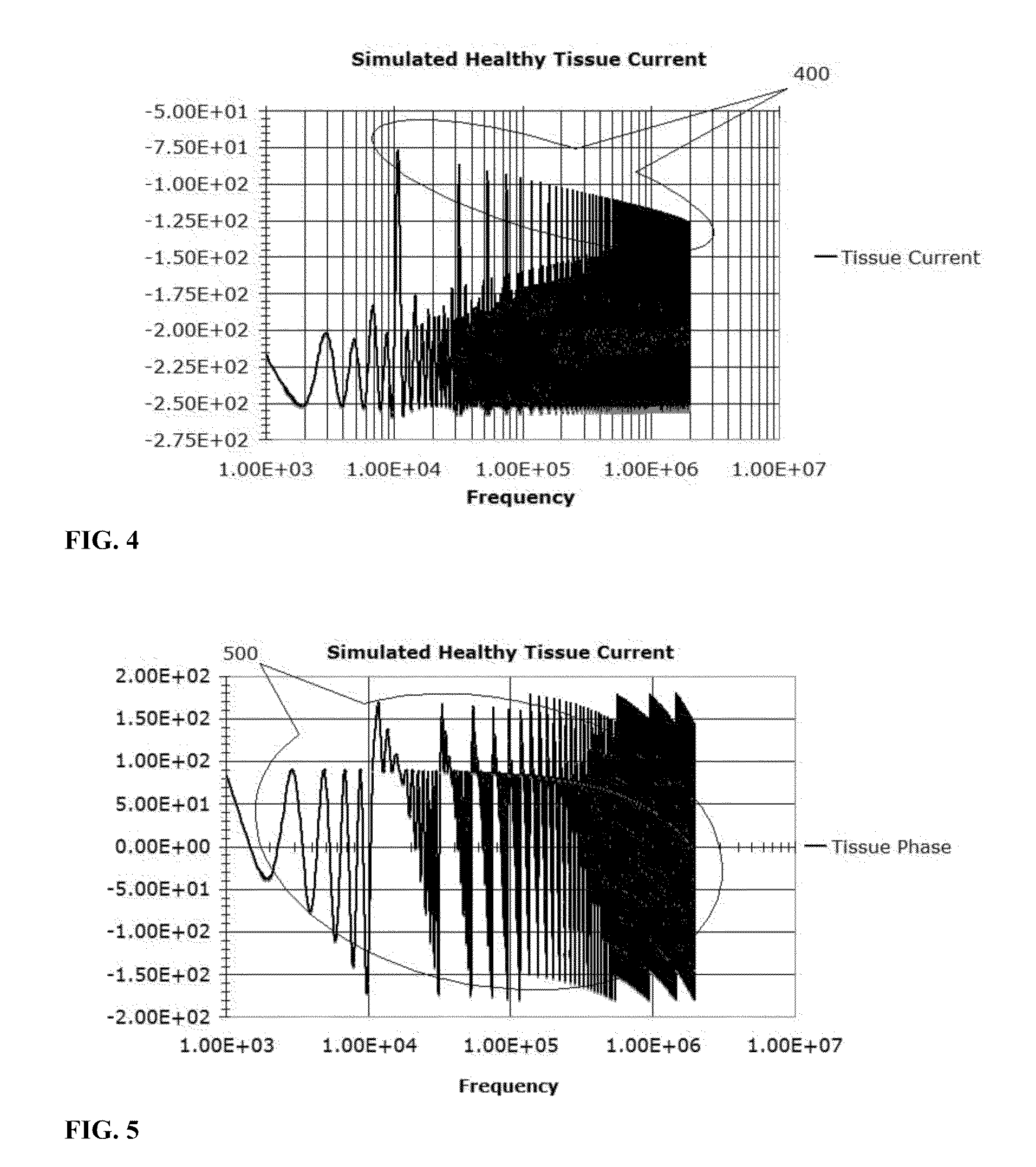Use of impedance techniques in breast-mass detection
a technology of impedance and breast, applied in the field of breast-mass detection, can solve the problems of difficult to distinguish from a tumor, difficult to achieve, and not necessarily stable, and achieve the effect of reducing the difficulty of mammographic differentiation between normal breast tissue and cancer
- Summary
- Abstract
- Description
- Claims
- Application Information
AI Technical Summary
Benefits of technology
Problems solved by technology
Method used
Image
Examples
Embodiment Construction
[0036] The amplitude and phase of several harmonics within a range of frequencies creates a signature of the breast growths allowing differentiation of benign and malignant masses. Our invention is novel in that it differentiates normal from abnormal tissue based on observing secondary effects of changes in dielectric properties due to increased numbers of cells based on phase and amplitude of multiple levels of harmonics without the necessity to measure absolute capacitance and resistance values. The invention allows differentiation of benign masses (e.g., tumor or infections) versus malignant masses versus other cellular changes. Our approach is not impacted by patient to patient differences.
[0037] Other impedance-related approaches (e.g., those referenced above from Mirabel Medical Systems, Biofield, and Davies) depend on measuring absolute capacitive and absolute resistive properties to compute the Cole-Cole function shape. Measuring absolute values is difficult and inherently ...
PUM
 Login to View More
Login to View More Abstract
Description
Claims
Application Information
 Login to View More
Login to View More - R&D
- Intellectual Property
- Life Sciences
- Materials
- Tech Scout
- Unparalleled Data Quality
- Higher Quality Content
- 60% Fewer Hallucinations
Browse by: Latest US Patents, China's latest patents, Technical Efficacy Thesaurus, Application Domain, Technology Topic, Popular Technical Reports.
© 2025 PatSnap. All rights reserved.Legal|Privacy policy|Modern Slavery Act Transparency Statement|Sitemap|About US| Contact US: help@patsnap.com



